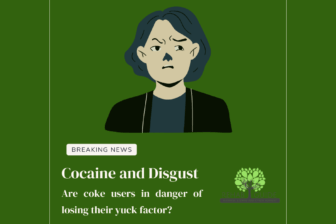Matt Willis Addiction Documentary
You might be familiar with the recent BBC documentary detailing Matt Willis’s struggle with addiction.
Willis is best known as the bassist and vocalist for Busted, a pop-punk band that has toured the world.
Critics and addiction experts alike have proclaimed the documentary one of the best among those discussing addiction. On one level, it is quite sad. But on another, it is encouraging to people struggling with addiction themselves, people who can identify with Matt Willis and his journey.
We believe there are lessons to be learned from this film. There are some important takeaways we can, and should, apply to how we address addiction in this country.

1. Environment Plays a Role
The documentary spends a considerable amount of time exploring how Willis got to the point of addiction. Willis revealed how he was introduced to drugs and alcohol at an early age. He got into the culture with his friends, which is where it all started. But Willis also explains that addiction did not become a problem until he joined up with Busted.
Apparently, the life of a touring band is ideal for drug and alcohol use. It is more or less a constant party scene. While on tour, Willis was routinely exposed to others who used drugs and alcohol with little inhibition. Not only that, but drug and alcohol use were also considered normal.
It didn’t take much for Willis to join in. And once in, addiction began to take hold. Five years into recovery, Willis still wonders if addiction is something he will have to live with for the rest of his life. Will he forever be in recovery?
2. Genetics May Play a Role
The documentary also explored the possibility that genetics play a role in addiction. This is not a new premise. Medical science has been studying the relationship between addiction and genetics for decades. Right now, the focus is on the reward centre of the brain.
Research from Imperial College London was mentioned in the documentary. That research indicates a lower reward response in the brains of people diagnosed with chemical dependence. Researchers believe that drugs and alcohol can have a critical impact on the brain’s reward centre.
It is possible that the lower reward response observed in addicts is not the result of substance abuse entirely. Researchers theorise that the response may have existed prior to alcohol and drug consumption, possibly increasing the likelihood of addiction setting in.
3. Trauma and Mental Health Issues
Other potential contributors to addiction are thought to be trauma and mental health issues. Both were explored in the Matt Willis documentary. To the extent that they can contribute to addictive behaviour, trauma and mental health issues need to be addressed during recovery. That was the big takeaway for this part of the discussion.
4. The Reality of Relapse
Our understanding of chemical dependence has led some in the scientific community to characterise genuine addiction as a chronic relapse disorder. Matt Willis certainly fits the bill. According to the documentary, he relapsed four times over his many years of alcohol and drug use. Even today, he continues to live in fear that he will relapse yet again.
The most important aspect to this portion of Willis’s story is the fact that he says he still feels a void in his life. He believes that void could be the open door to relapse, so he continues to fight to make sure he stays clean.
For the record, Willis is not alone in his experience. As many as 60% of those treated for substance use disorders will relapse at some point. The big question is whether we can reduce relapse rates by addressing the void Willis described in the film.
5. Addiction Affects Multiple People
The last point we want to focus on is that addiction doesn’t just affect the addict alone. It also impacts everyone around them. In Willis’s case, his friends and family members were all affected. Matt’s wife, Emma, was perhaps the most impacted person of all.
Emma spoke about her experiences living with an addict. She talked about Willis’s manipulation whenever she tried to address the problem. She explained how she often felt she was wrong after having a conversation with him about his substance abuse.
In hindsight, Emma now says she probably should have left her marriage. She didn’t. But choosing to stay continues to affect her even five years into his latest recovery. She explains that “living with somebody with addiction is unpredictable and anxiety-inducing.”
We don’t have all the answers explaining what causes addiction and how to fix it. Nobody does. But if we have learned anything from the Matt Willis documentary, it is that we should never give up




